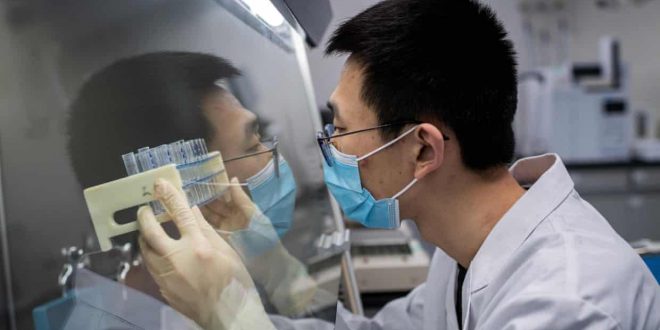Ministers and officials from every nation will meet via video link on Monday for the annual world health assembly, which is expected to be dominated by efforts to stop rich countries monopolising drugs and future vaccines against Covid-19.
As some countries buy up drugs thought to be useful against the coronavirus, causing global shortages, and the Trump administration does deals with vaccine companies to supply America first, there is dismay among public health experts and campaigners who believe it is vital to pull together to end the pandemic.
While the US and China face off, the EU has taken the lead. The leaders of Italy, France, Germany and Norway, together with the European commission and council, called earlier this month for any innovative tools, therapeutics or vaccines to be shared equally and fairly.
“If we can develop a vaccine that is produced by the world, for the whole world, this will be a unique global public good of the 21st century,” they said in a statement.
The sole resolution before the assembly this year is an EU proposal for a voluntary patent pool. Drug and vaccine companies would then be under pressure to give up the monopoly that patents allow them on their inventions, which means they can charge high prices, so that all countries can make or buy affordable versions.
In the weeks of negotiations leading up to the meeting, which is scheduled to last for less than a day, there has been a dispute over the language of the resolution. Countries with major pharmaceutical companies argue they need patents to guarantee sufficiently high prices in wealthy nations to recoup their research and development costs.
Even more fraught have been attempts to reinforce countries’ existing rights to break drug and vaccine company patent monopolies if they need to for the sake of public health. A hard-fought battle over Aids drugs 20 years ago led to the World Trade Organization’s Doha declaration on trade-related intellectual property (Trips) in favour of access to medicines for all, but the US, which has some of the world’s biggest drug companies, has strongly opposed wording that would encourage the use of Trips.
Campaigners say the resolution expected to be passed by the world health assembly’s 198 member states is along the right lines, but too weakly worded.
“In general, it is a disappointment, appalling really. There was better text that was rejected,” said Jamie Love, the director of the NGO Knowledge Ecology International. “The US, UK, Swiss and some others pushed against the WHO taking the lead in pushing for open licensing of patents and know-how for drugs and vaccines.
“In a global crisis like this, that has such a massive impact on everyone, you would expect the WHO governing body to have the backbone to say no monopolies in this pandemic. It’s one thing for a country to use its economic clout to buy preferential access to drugs or vaccines. It’s another to prevent others from manufacturing and expanding global supply.”
Oxfam’s health policy manager, Anna Marriott, said: “This week’s letter calling for a people’s vaccine, which was signed by more than 140 world leaders and experts, sets the bar for the scale of ambition we need to meet the challenge before us.
“As we approach the final stages of this resolution, we need to see health ministers raise their game to match this ambition. Any government that tries to block or dilute this resolution is risking lives and standing on the wrong side of history.”
A UK government spokesman said: “The UK has long supported affordable and equitable access to essential medicines, including in low and middle-income countries. We continue to support public-private partnerships for product development, and approaches such as non-exclusive voluntary licensing which promote affordable access for all while also providing incentives to create life-changing vaccines.”
 Lebanese Ministry of Information
Lebanese Ministry of Information



